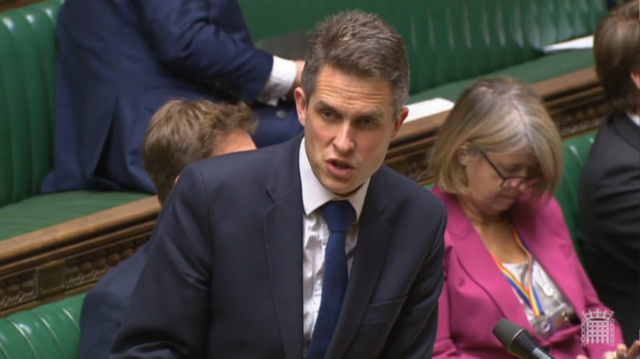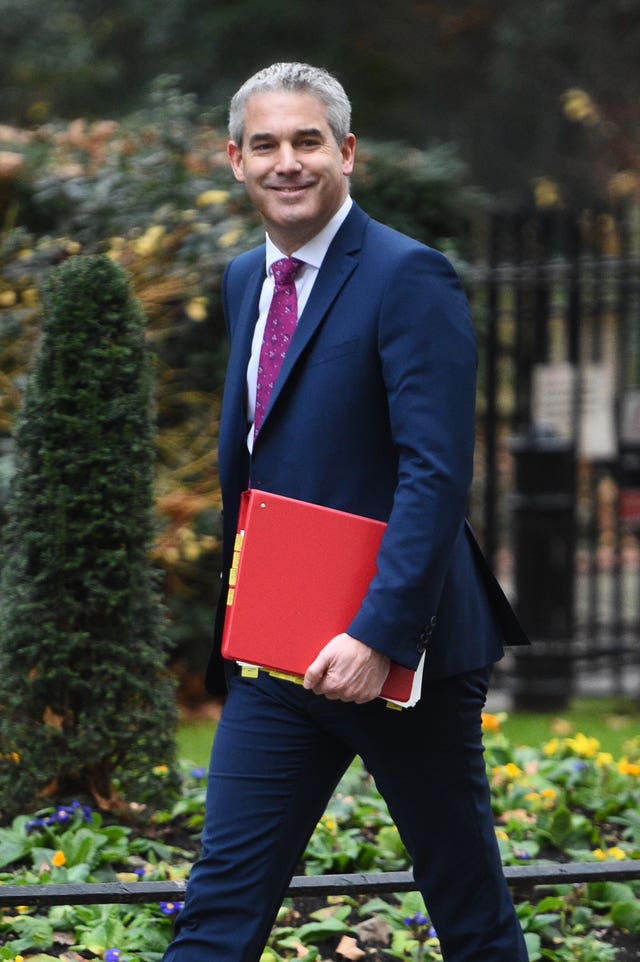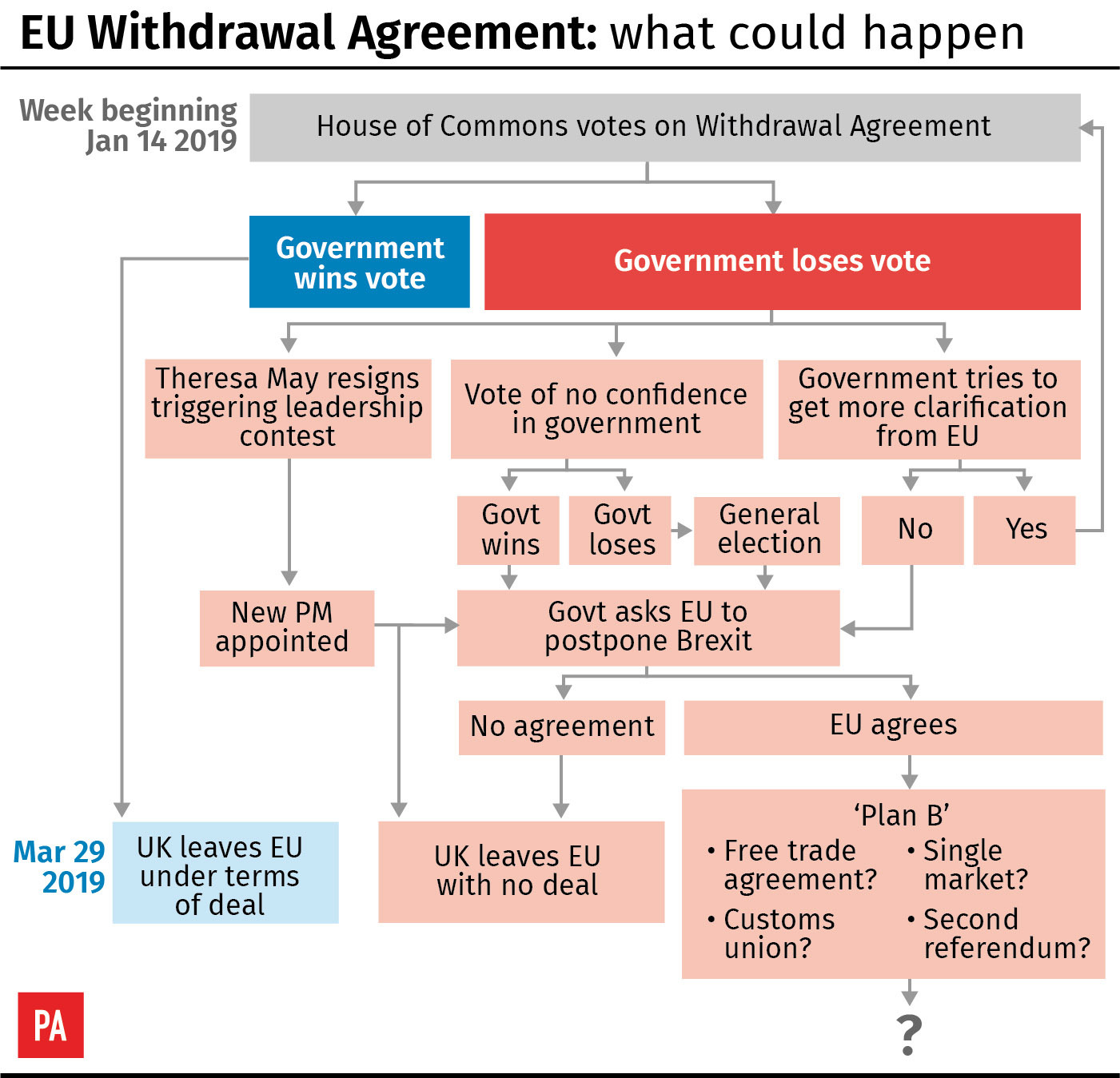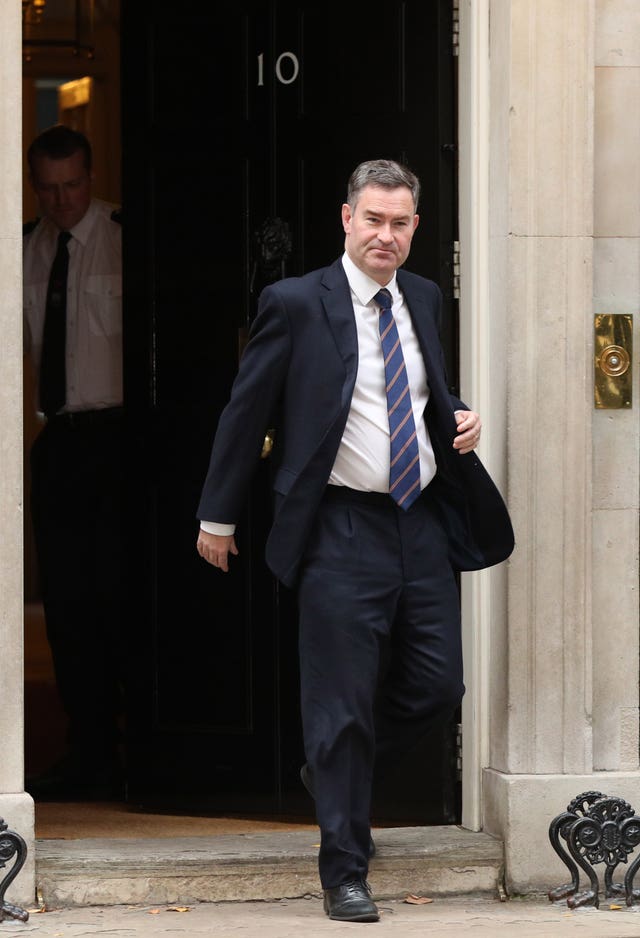Government ramps up preparations for no-deal Brexit
The Cabinet has agreed to send out advice to businesses and households on how they can get ready for EU withdrawal without a deal on March 29.

Theresa May’s Cabinet has agreed to ramp up preparations for a no-deal Brexit, 101 days before the UK is due to leave the European Union.
Ministers agreed to activate all of the Government’s no-deal plans in the hope of preparing the country for the possibility that the UK will crash out without agreement on March 29.
They urged businesses to consider implementing their own contingency plans and said households should also make preparations.
And HM Revenue and Customs will provide an updated 100-plus page online advice pack for businesses on possible changes at borders, with emails due to go out later this week to 80,000 of those most likely to be affected.
Advice is to be issued to private individuals through online websites, adverts and direct communications over the coming weeks on actions which they should take. Areas covered are expected to include bank card payments in the EU and travelling to the continent with pets.
Asked whether families should feel able to go ahead with plans to travel to Europe for the Easter holidays, which fall just after the expected date of Brexit, the Prime Minister’s official spokesman said: “I’m not aware of any reason they shouldn’t do that.”

Brexit Secretary Steve Barclay warned that unless MPs back Mrs May’s deal when it returns to the Commons in January the default option is for the UK to leave without any exit arrangement in place.
“Parliament needs to back the deal because the consequence of not doing so is we risk the default of no-deal, and a responsible Government must prepare for that eventuality,” said Mr Barclay.
“That is what we agreed at Cabinet. That is what we are going to do.”

“There are a number of scenarios being floated in Government without, I think, people really engaging on the consequences of that – either the consequence to our democracy of not delivering on the referendum, not having Brexit – or the idea that we can cherry-pick and have some managed no-deal where the EU will suspend its own red lines, which I don’t think is feasible.”
In a direct plea to the UK’s company bosses, he said that preparing for no-deal needed to be “much more of a priority for businesses up and down the country”.
It is understood that ministers at the weekly session of Cabinet at 10 Downing Street were presented with three options – to continue with the current policy of enacting no-deal plans when it became necessary on a case-by-case basis; to move to full implementation of the plans; or to scale back no-deal preparations.

Work and Pensions Secretary Amber Rudd said that ramping up the preparations did not mean a no-deal outcome, telling colleagues: “Just because you put a seatbelt on doesn’t mean that you should crash the car.”
Ms Rudd, who campaigned for Remain in the referendum, urged other ministers to consider job losses in their constituencies in the case of no-deal.
Adding that Britain will have a positive future post-Brexit if it gets a deal, she said “we have to put politics aside” and talk across the House to build a consensus, putting “country before politics”.
The Press Association understands that Justice Secretary David Gauke was scathing about the prospect of a “managed no-deal” Brexit.
He told fellow ministers it was “not a viable option” and was not on offer from the European Union, adding: “The responsibility of Cabinet ministers is not to propagate unicorns but to slay them.”
Brexit-backing Commons Leader Andrea Leadsom was one of the main critics of ministers – including Amber Rudd and Greg Clark – who have suggested there should be an “indicative vote” of MPs to choose from a range of options on the way forward.
Speaking shortly after the meeting, Mrs May’s official spokesman said: “Cabinet agreed that with just over three months until we exit from the European Union we have now reached the point where we need to ramp up these preparations.

“Cabinet also agreed to recommend businesses now to also ensure they are similarly prepared, enacting their own no-deal plans as they judge necessary.
“Citizens should also prepare in line with the technical notices issued in the summer and in line with further more detailed advice that will now be issued over coming weeks.”
The spokesman added: “Delivering the deal remains the Government’s top priority and our best mitigation against a no-deal scenario.
“This is a sensible Government ensuing that people are prepared for all scenarios.”
Whitehall departments have identified some 320 workstreams on no-deal preparations, with each likely to involve a number of individual plans.





